Personalized Inpatient Treatment for Anxiety Disorders and Addiction
The significance of anxiety disorders lies in their ability to disrupt daily functioning, strain relationships, and diminish overall well-being.
Specialized treatment centers are crucial to address the unique challenges of anxiety disorders effectively. These centers provide:
- A tailored approach to care.
- Offering evidence-based therapies.
- Medication management.
- A supportive environment that recognizes the complexities of anxiety disorders.
By understanding the significance of anxiety disorders and recognizing the need for specialized treatment centers, individuals can access the comprehensive support they need for recovery and improved mental health.
Our promise is that you will be treated with love & respect.
Our goal is to make Renewal Lodge your very last treatment stay.
Allow us the opportunity to provide you and/or your loved one the skills and tools to get and stay sober.
Assessing and Diagnosing Anxiety Disorders
The accurate assessment and diagnosis of anxiety disorders are essential for developing effective treatment plans and providing appropriate care. Understanding the diagnostic process for anxiety disorders involves a comprehensive evaluation of symptoms, their duration, and their impact on daily functioning. Mental health professionals utilize various assessment tools and techniques to gather information and diagnose precisely.
The diagnostic process typically begins with a thorough clinical interview. During this interview, the healthcare provider will ask specific questions about the individual’s symptoms, frequency, and the situations that trigger them. The clinician will also inquire about the duration of symptoms and co-occurring conditions, such as substance abuse or other mental health disorders.
In addition to the clinical interview, mental health professionals often use standardized assessment tools to aid the diagnostic process. These assessment tools provide a structured and objective way to evaluate the severity and type of anxiety disorder. Some common assessment tools used in anxiety treatment centers include:
Beck Anxiety Inventory (BAI): A self-report questionnaire that assesses the severity of anxiety symptoms, including physiological symptoms, subjective distress, and behavioral manifestations.
These assessment tools help clinicians gather standardized and quantifiable data, clarifying the individual’s anxiety symptoms. They assist in making an accurate diagnosis and determining the appropriate course of treatment.
By utilizing comprehensive assessments and standardized tools, mental health professionals in anxiety treatment centers can effectively evaluate and diagnose anxiety disorders. This diagnostic process ensures that individuals receive the most appropriate and tailored care for their specific needs, promoting better outcomes and improved overall well-being.

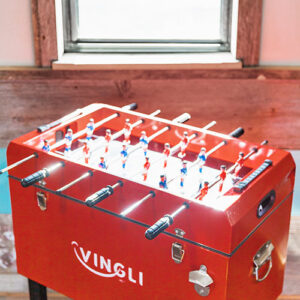





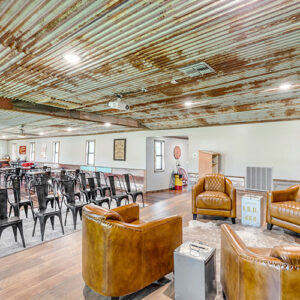




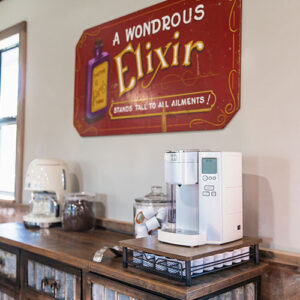






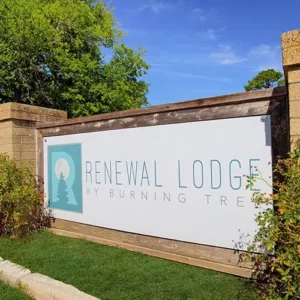



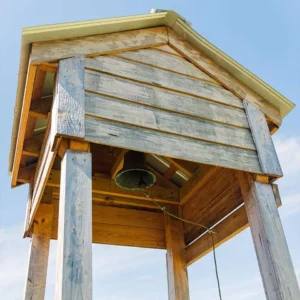
The Connection Between Anxiety and Addiction
Anxiety and addiction are two interwoven conditions that often coexist and influence each other in complex ways. Many individuals with anxiety disorders may turn to substances for self-medication, attempting to alleviate the distressing symptoms they experience. This self-medication can temporarily relieve anxiety but can also lead to a harmful cycle of addiction.
The connection between anxiety and addiction lies in the shared underlying factors and neurobiological mechanisms contributing to both conditions. Anxiety disorders involve imbalances in brain chemicals, such as serotonin and dopamine, which regulate mood and emotions. Substance abuse similarly affects these brain chemicals, leading to temporary feelings of pleasure or relief.
Individuals with anxiety disorders may seek substances such as alcohol, benzodiazepines, or illicit drugs to alleviate their anxiety symptoms. Initially, these substances may provide a sense of calm or relaxation, reinforcing their use as a coping mechanism. However, as tolerance builds, higher doses or more frequent use are required to achieve the desired effects, eventually leading to addiction.
Conversely, substance abuse can increase anxiety symptoms over time. Prolonged substance use alters brain chemistry and can exacerbate anxiety disorders or induce anxiety-like symptoms. The withdrawal effects during periods of abstinence can further intensify anxiety, creating a cycle of substance use and anxiety reinforcement.
The combination of anxiety and addiction, known as dual diagnosis or co-occurring disorders, presents unique challenges in treatment. Both conditions need to be addressed simultaneously to achieve lasting recovery. Effective treatment approaches aim to address the underlying causes of anxiety while providing support for overcoming substance abuse.
Integrative treatment programs in specialized centers offer a comprehensive approach to dual diagnosis. These programs typically incorporate evidence-based therapies, such as cognitive-behavioral therapy (CBT) and dialectical behavior therapy (DBT), to address both anxiety and addiction. Medication management may also be utilized to manage anxiety symptoms and support recovery.
Furthermore, holistic therapies, including mindfulness practices, yoga, and stress reduction techniques, can help individuals develop healthier coping mechanisms and manage anxiety symptoms without resorting to substance use. Peer support groups and 12-step programs can also provide a supportive community for individuals navigating both anxiety and addiction.
Understanding the connection between anxiety and addiction is vital in providing appropriate and effective treatment. By addressing both conditions comprehensively and comprehensively, individuals can break free from the cycle of anxiety and substance abuse, leading to improved mental health and a healthier, more fulfilling life.
Tailored Approaches to Address Dual Diagnosis at Renewal Lodge
At Renewal Lodge, we understand the complexities and unique challenges of dual diagnosis, where individuals struggle with both anxiety disorders and substance abuse or addiction. We are committed to providing comprehensive and personalized care that addresses the specific needs of individuals facing dual diagnosis. Our specialized approach focuses on integrating evidence-based therapies, supportive interventions, and a compassionate environment to support lasting recovery.




